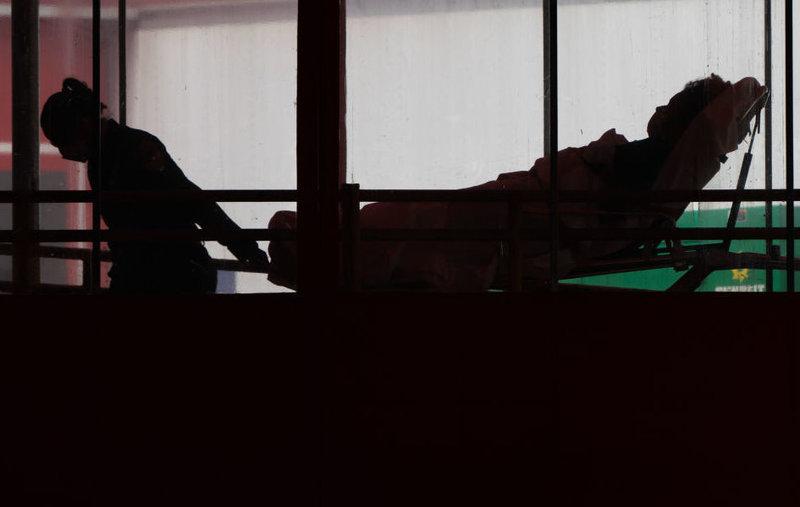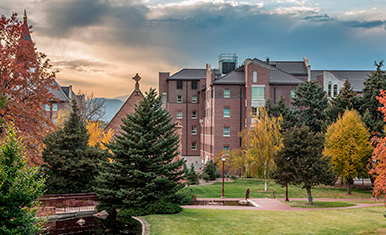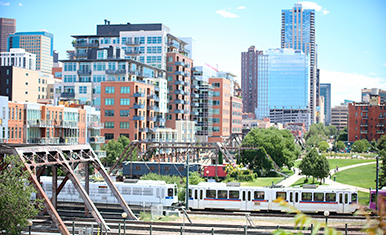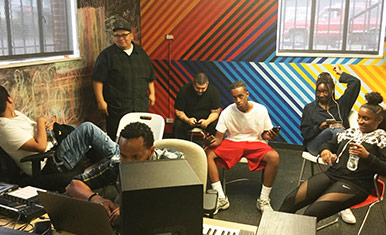Always in Crisis: COVID-19 and the Role of Higher Education in Supporting Research, Scholarship, and Curriculum to Challenge Racial Inequity in American Culture and Life
By Tom I. Romero, II, J.D., Ph.D., Director of IRISE
Part I: The Paradox of the Public Good
It is no surprise that moments of crisis almost always reveal deep, persistent, and stark inequities in the American condition. Our current crisis, the global COVID-19 pandemic, is playing out in predictable ways. In the time since the first confirmed case of 2019-nCov was reported in the United States, hundreds of thousands of people in the United States have been infected and tens of thousands have died. While many well-meaning politicians, pundits and observers of the crisis remarked that the pandemic was a “great equalizer” in that anyone could be impacted, scores of articles have since demonstrated that the pandemic is anything but equal. Instead, from an over-representation of people of color as front-line and insufficiently protected “essential” workers to an equally troubling disparate infection and death rate, the pandemic has revealed the dramatic under-investment and divestment from the systems and strategies that would create healthier, safer, and more equitable communities nationwide. A legacy of past enslavement, colonialism and on-going poverty, incarceration, violence and discrimination have only exacerbated the racialized path of the pandemic. While the country is currently in crisis, COVID-19 has shown us once again how communities of color have always been in crisis and are disproportionately impacted by systemic and institutional failures.
The core question this and subsequent blogs begin to address is how should higher education respond to the racialized reality of COVID-19’s spread? More specifically, how might future research, scholarship, and related curricular competencies need to fundamentally change so we, as front line producers of knowledge, can have effective, compassionate, and inclusive tools at our disposal to confront many of the “crises” that our communities collectively and differentially face? In the blogs that will follow in the coming weeks, I’ll explore two examples at the University of Denver—one based on research and scholarship and one based on curriculum—to start providing some answers to these questions.
For this first blog, however, I want to address a central paradox that exists for many institutions of higher education that are currently experiencing an existential crisis as a result of the global pandemic. For universities like mine, whose core vision is to serve the “public good,” COVID-19 poses an unprecedented prospect to re-think and thereby re-imagine the frameworks and core proficiencies by which we produce and transmit knowledge in ways heavily informed by understanding the deep and persistent inequalities of our modern world.
Definitions and Its Discontents
In his installation at President of Harvard University in 2018, Lawrence S. Backow made a pronouncement that is familiar to many of us higher education about our service and mission to the public:
"We need to ensure that future generations continue to serve the greater good in a variety of ways. Every Harvard graduate, in every profession, should be an active, enlightened, and engaged citizen. So I am pleased to announce today we will work towards raising the resources, so we can guarantee every undergraduate who wants one, a public-service internship of some kind—an opportunity to see the world more expansively, and to discover their own powers to repair that world."
At the University of Denver, we have simplified as well as operationalized this vision in the following phrase: “A Private University Committed to the Public Good” and it has shaped the ways we plan to build our future.
Unsurprisingly, the term “public good” has, at least on our campus, almost always been contested. A precise term of art in the economic world, it has nevertheless emerged as a way for universities committed to the tenants of liberal education to organize their mission and vision to develop responsible community members while contributing specialized knowledge of use and benefit to a larger society.
In practice, however, there has been little consensus about what this actually means. For those in the STEM fields, for instance, all basic science research is a public good. Because many of these researchers are not driven by profit (or so the thinking goes), it allows for conceptual breakthroughs often years and decades in the making. As the CEO of the American Society for Microbiology observed: “What CEO would sign off on paying for research in yeast on how cells secrete bioactive substances, based on the very slight chance that in 30 years, this knowledge might revolutionize drug delivery? What shareholders meeting would sit through a presentation on a 1% chance of ROI in 10 or 20 years?”
While such an understanding of the public good is no doubt accurate, it does not easily conform to the expectations of the increasingly diverse students, staff and faculty that make up college and university campuses. As one recent study found, “women and underrepresented minorities in higher education show greater appreciation for the benefits of higher education to the individuals and society as a whole” (emphasis mine). Yet, many have become cynical that their experiences with higher education has not fully delivered on these promises. As a result, college students from racially minoritized backgrounds have been and continue to challenge the more generalized public good missions of colleges and universities in significant ways. They:
- have been and continue to demand that colleges and universities take ownership of racist, colonial, and or oppressive practices and symbols of its past;
- rally to ask for greater representation of themselves, their histories and their experiences as minoritized peoples in faculty and staff ranks as well as core curricular and degree offerings;
- continue to become (along with faculty and staff) disillusioned as public good oriented colleges publicly embrace values such as diversity, equity, and inclusion, but fail to operationalize those components in all that a university does.
These tensions accordingly play themselves out in context of higher education’s core mission in the production and transmission of knowledge. An example of this played itself out in the scope of conversation I had with an administrative leader in the STEM fields a couple years ago. As I was asking this leader how and in what ways I could partner with them to incentivize faculty to be more directly engaged in research and scholarship that directly deal with social inequalities, they had the following reply:
While those issues are important, I want you to know that our faculty deal with issues at the sub-molecular level. They can’t and should not be concerned with issues that don’t effect the discipline or the school (this is my own remembering of the conversation).
In many ways, this leader was merely telling me a simple reality—STEM scholars as well as many other faculty across most disciplines are rarely, if ever incentivized to think about, much less embed issues of social inequity in their work. And those that do this type of work, do so at their own peril as such research and scholarship is minimized, seen as less rigorous, and pushed to the margins. In almost all of our disciplines, we like many of our campuses have been and continue to remain deeply siloed, parochial, and cabined off from the messy human world. When our brightest and best minds at universities are then asked to substantively engage with the crises of this same human world, we are often ill-equipped, under-prepared, and almost always late to understand or prepare meaningful solutions to those most vulnerable and in need.
We are at pivotal moment in American and world history and institutions of higher education are both called on and tested in ways that should force us to reckon with our missions that directly address the dire outcomes of inequity and inequality. Higher education and its many disciplines are certainly not a panacea. But if COVID-19 has taught us anything, it is that the natural sub-molecular world (as well as much knowledge in between) is intricately connected to human lives of vastly different and almost always unequal experiences. Such inequality and related inequity is not a matter of chance, but is the product of historical and on-going forces of power, privilege and oppression that all those who engage in research, scholarship, and creative works should, at the very least, be prepared to explain why it is not relevant to their work or even their teaching.
COVID-19 not withstanding, higher education is currently undergoing an existential crisis to be relevant as it become less affordable and less accessible. Ironically, those same historically underrepresented students who find higher education to be of the greatest benefit to themselves and society represent the largest growing and most important demographic for these same institutions to survive in the near future. Whether as students or future faculty members, these individuals succeed when what they learn or what they research is directly connected to their lives and communities.
Those institutions in higher education committed to some concept of a public or larger good therefore have a choice. We can deploy our resources in highly specialized and un-connected ways that ignores these demographic realities in the core research and teaching work that we do. Or, we can identify and be fully committed to using our unique position in the production and transmission of knowledge that takes seriously within and between disciplines what (at least in the United States) has and continue to be one of the most salient challenges of the human condition: racial inequality. In the present challenging climate, higher education can be relevant, impactful, and forward thinking to not only ask and come up with answers to the tough questions, but can train a whole new generation of diverse and committed thought leaders equipped to handle the on-going crises of these times.
Next Installments.
Part II: Positioning the Color Line in Research and Scholarship (Forthcoming)
Part III. Bringing Critical Race Studies From the Margin to the Mainstream Curriculum (Forthcoming)
Tom I. Romero, II, J.D., Ph.D. Director of IRISE, Associate Professor of Law and Affiliated Faculty in the Department of History. Dr. Romero also serves as the Associate Provost of Inclusive Excellence Research and Curricular Initiatives in the Office of Diversity, Equity and Inclusion at the University of Denver. He is the project lead of IRISE’s Color of Water Project

PC: Bloomberg via Getty Images


